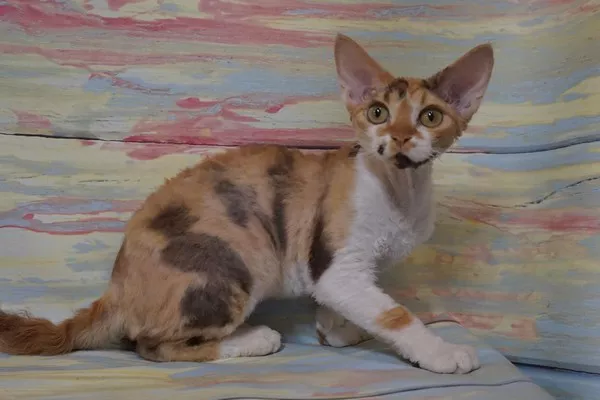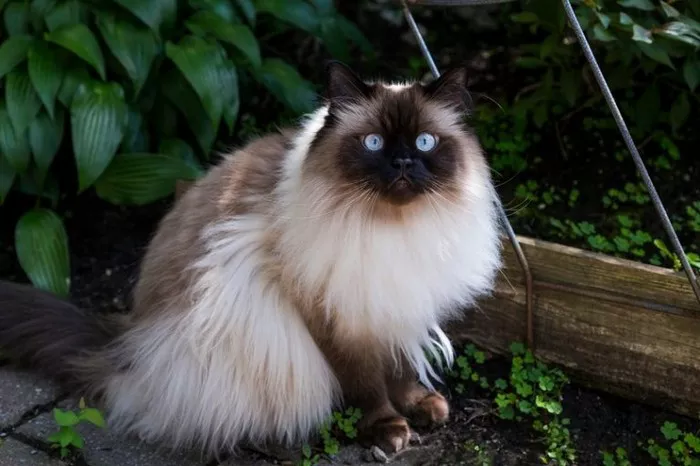Devon Rex cats, with their unique appearance and playful personality, have captured the hearts of cat lovers worldwide. As one of the many breeds cherished for their distinctive traits, the shedding behavior of Devon Rex cats is of particular interest to owners seeking to maintain a tidy home environment. In this comprehensive guide, we delve into the shedding patterns of Devon Rex cats, dispel common misconceptions, and provide grooming tips to help keep their coats healthy and manageable.
Introduction to Devon Rex Cats:
The Devon Rex is a breed known for its curly coat, large ears, and affectionate nature. Originating from England in the 1960s, these cats quickly gained popularity for their unique appearance and playful demeanor. With their soft, wavy fur and lively personality, Devon Rex cats make delightful companions for individuals and families alike.
Understanding Shedding in Devon Rex Cats:
Contrary to popular belief, Devon Rex cats do shed, albeit to a lesser extent than some other breeds. While they may not shed as much as breeds with longer or denser coats, Devon Rex cats still experience a shedding cycle that is influenced by various factors, including genetics, health, and environmental conditions.
The shedding process in cats is a natural phenomenon that helps regulate body temperature, remove dead or damaged hair, and renew the coat. Cats, including Devon Rexes, shed year-round, with peak shedding periods occurring during seasonal changes such as spring and fall. During these times, cats may shed more profusely as they transition between winter and summer coats.
Factors Influencing Shedding:
Several factors influence the shedding behavior of Devon Rex cats, including:
Genetics: The genetics of the Devon Rex breed contribute to their unique coat characteristics, including the texture and density of their fur. While Devon Rex cats have shorter coats with minimal undercoat, individual variations in coat texture and shedding patterns may occur.
Health: The overall health and well-being of a cat can impact its shedding behavior. Cats with underlying health issues or nutritional deficiencies may experience abnormal shedding patterns or excessive hair loss. Regular veterinary check-ups and a balanced diet can help maintain the health of Devon Rex cats and minimize shedding-related issues.
Seasonal Changes: Like other animals, cats may shed more heavily during seasonal changes as they adapt to fluctuations in temperature and daylight hours. Spring and fall are typically associated with increased shedding as cats shed their winter coats in preparation for warmer weather.
Environmental Factors: Environmental factors such as indoor temperature, humidity levels, and exposure to sunlight can influence shedding in Devon Rex cats. Maintaining a comfortable indoor environment and providing adequate grooming and care can help regulate shedding and promote coat health.
Grooming Tips for Devon Rex Cats:
While Devon Rex cats may shed less than some other breeds, regular grooming is still essential to keep their coats healthy and free of mats and tangles. Here are some grooming tips to help care for your Devon Rex:
Brushing: Despite their shorter coats, Devon Rex cats benefit from regular brushing to remove loose hair, debris, and dander. Use a soft-bristled brush or grooming mitt to gently brush your cat’s coat, paying attention to areas prone to matting such as behind the ears and under the chin.
Bathing: Bathing your Devon Rex cat occasionally can help remove excess oil and debris from their skin and coat. Use a mild cat shampoo formulated for sensitive skin and rinse thoroughly to avoid residue buildup. Be sure to dry your cat thoroughly after bathing to prevent chilling.
Ear Cleaning: Devon Rex cats are prone to wax buildup and ear infections due to their large ears and narrow ear canals. Regularly inspect your cat’s ears for signs of dirt or discharge and gently clean them with a damp cotton ball or soft cloth. Avoid inserting cotton swabs into the ear canal, as this can cause injury.
Nail Trimming: Trim your cat’s nails regularly to prevent them from becoming overgrown and causing discomfort or injury. Use a pair of cat nail clippers to trim the tips of the nails, taking care not to cut into the quick (the pink part of the nail that contains blood vessels).
Dental Care: Dental hygiene is an essential aspect of overall grooming for Devon Rex cats. Brush your cat’s teeth regularly with a soft-bristled toothbrush and cat-specific toothpaste to prevent plaque buildup and gum disease. Additionally, provide dental treats or toys designed to promote oral health.
By incorporating these grooming tips into your routine, you can help keep your Devon Rex cat’s coat healthy, shiny, and free of mats and tangles. Remember to approach grooming sessions with patience and gentleness, and always monitor your cat’s health and well-being for any signs of discomfort or distress.
Conclusion:
In conclusion, while Devon Rex cats may shed less than some other breeds, they still require regular grooming to maintain healthy coats and overall well-being. By understanding the factors influencing shedding and implementing proper grooming techniques, owners can help keep their Devon Rex cats looking and feeling their best. Whether it’s brushing, bathing, or nail trimming, a little TLC goes a long way in caring for these beloved feline companions.
























